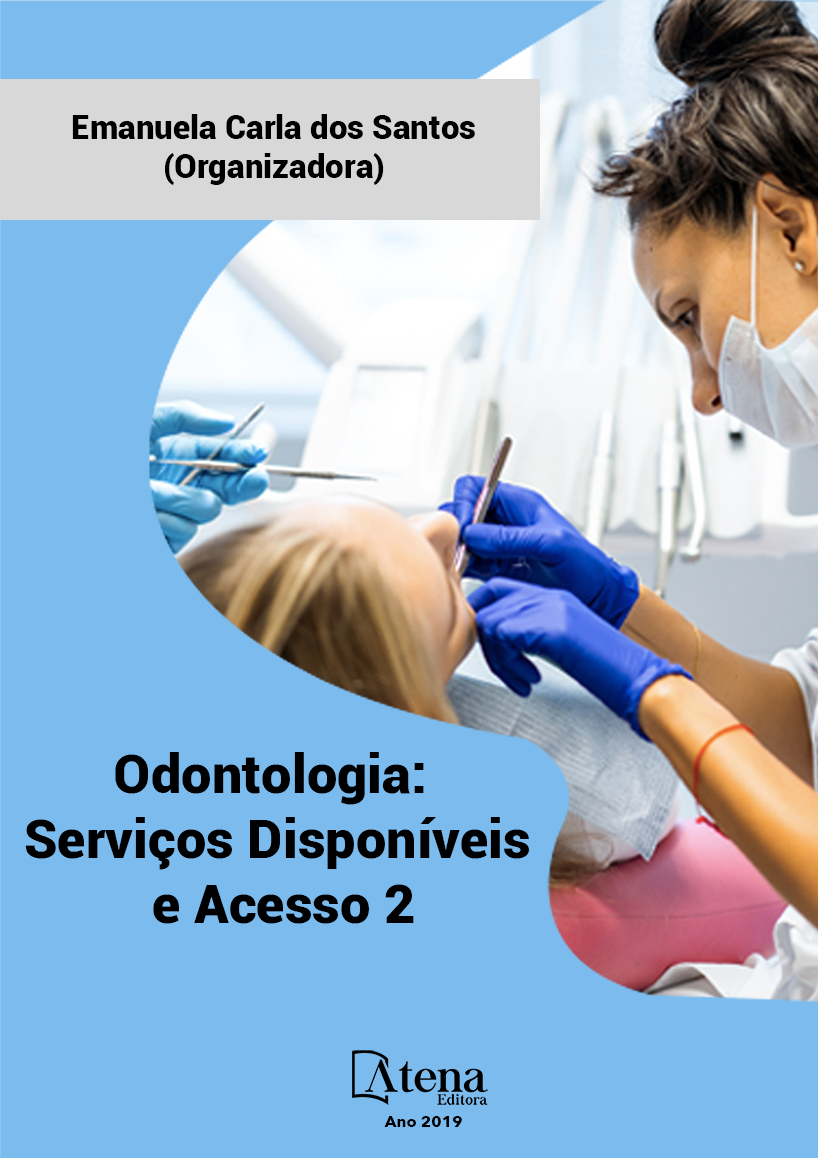
PERFIL SOCIODEMOGRÁFICO, COMPORTAMENTO SOBRE HIGIENE ORAL, DIETA E ANÁLISE DOS PARÂMETROS SALIVARES DE PACIENTES INFANTO-JUVENIS SUBMETIDOS Á TRATAMENTO ANTINEOPLÁSICO
A prevalência do câncer infantojuvenil
tem crescido na população brasileira,
notando-se maior ocorrência de letalidade,
sobretudo nas regiões mais desfavorecidas
economicamente. O objetivo da presente
pesquisa foi analisar o perfil sociodemográfico,
comportamento sobre higiene oral, dieta e
parâmetros salivares de pacientes infanto
juvenis submetidos a tratamento antineoplásico.
A amostra foi composta por 51 pacientes, na
faixa etária de 2 a 18 anos, com o diagnóstico de
neoplasia, cadastrados na Associação de Pais
e Amigos dos Leucêmicos de Alagoas (APALA),
Maceió-AL. Foi aplicada uma entrevista
estruturada sobre comportamento de higiene
bucal e dieta e realizados testes de fluxo salivar
estimulado e capacidade tampão. Os resultados
mostraram 76,47% dos pacientes do sexo
masculino, 52,94% cor parda, 39,21% na faixa
etária de 5 a 7 anos, 66,66% vindos do interior
do estado de Alagoas, 86,28% alfabetizados
e 70,59% com a renda de um salário mínimo.
Os pacientes apresentaram fluxo salivar
estimulado de 0,56mL/min ±0,34 e capacidade
tampão de 4,02. Um percentual de 66,66%
dos pacientes escovavam sua própria boca e
76,47% consumiam alimentos cariogênicos
entre as refeições. Conclui-se que os pacientes
possuem como perfil sociodemográfico: sexo
masculino, cor parda, faixa etária de 5 a 7 anos,
renda de um salário mínimo, alfabetizados e
vindos do interior do estado de Alagoas apresentam consumo freqüente de alimentos
cariogênicos e práticas insuficientes de saúde bucal; os parâmetros salivares revelam
hipossalivação e baixa capacidade tampão, fatores que aumentam o risco de problemas
bucais como a cárie e erosão dental.
PERFIL SOCIODEMOGRÁFICO, COMPORTAMENTO SOBRE HIGIENE ORAL, DIETA E ANÁLISE DOS PARÂMETROS SALIVARES DE PACIENTES INFANTO-JUVENIS SUBMETIDOS Á TRATAMENTO ANTINEOPLÁSICO
-
DOI: 10.22533/at.ed.71019111115
-
Palavras-chave: Perfil epidemiológico; Higiene bucal; Dieta cariogênica; Saliva
-
Keywords: Health Profile; Oral Hygiene; Diet, Cariogenic; Saliva
-
Abstract:
The prevalence of childhood and juvenile cancer has increased in the
Brazilian population, with a higher occurrence of lethality, especially in economically
disadvantaged regions. The objective of the present research was to analyze the
sociodemographic profile, behavior on oral hygiene, diet and salivary parameters
of juvenile infants undergoing antineoplastic treatment. The sample consisted of 51
patients, aged 2 to 18 years, with diagnosis of neoplasia, enrolled in the Association
of Parents and Friends of Leukemia of Alagoas (APALA), Maceió-AL. A structured
interview on oral hygiene behavior and diet was carried out and tests of stimulated
salivary flow and buffer capacity were performed. The results showed 76.47% of the
male patients, 52.94% were brown, 39.21% were aged between 5 and 7 years, 66.66%
were from the interior of the State of Alagoas, 86.28% were literate and 70.59% with
the income of a minimum wage. Patients presented stimulated salivary flow of 0.56
mL / min ± 0.34 and a buffer capacity of 4.02. A percentage of 66.66% of the patients
brushed their own mouth and 76.47% consumed cariogenic foods between meals. It is
concluded that the patients have as sociodemographic profile: male, brown, age group
of 5 to 7 years, income of a minimum wage, literate and coming from the interior of the
state of Alagoas present frequent consumption of cariogenic foods and insufficient oral
health practices; the salivary parameters reveal hyposalivation and low buffer capacity,
factors that increase the risk of oral problems such as caries and dental erosion.
-
Número de páginas: 15
- José de Castro Jatobá Neto
- Altamiro Júnio Paranhos Cesar de Mendonça
- Laís Renata Almeida Cezário Santos
- Giane Meyre de Assis Aquilino
- Tâminez de Azevedo Farias
- Natália Silva Araújo
- Sylvia Amélia Vasconcelos de Albuquerque
- Natanael Barbosa dos Santos
- Natália Leão Gonçalves


